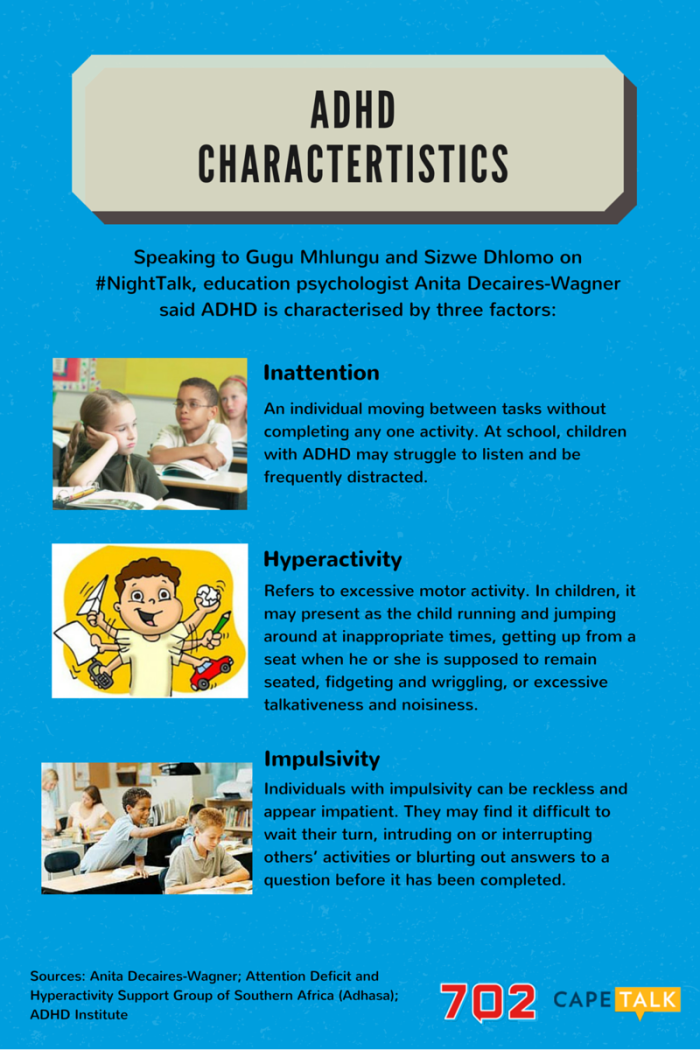Attention-deficit/hyperactivity disorder (ADHD) is a neurodevelopmental disorder that is characterized by inattention, impulsivity, and hyperactivity. It is one of the most common mental health disorders in children, and it is often diagnosed in adults as well. While ADHD is a real disorder that can have a significant impact on a person's life, there is growing concern about the possibility of overdiagnosis.
One of the main reasons for the concern about overdiagnosis is that the symptoms of ADHD can be similar to those of other disorders or can be caused by other factors. For example, some people with anxiety or depression may have symptoms that resemble those of ADHD, such as difficulty concentrating or being easily distracted. In addition, some people may exhibit symptoms of ADHD as a result of sleep deprivation, stress, or other environmental factors.
Another factor that may contribute to overdiagnosis is the lack of clear diagnostic criteria for ADHD. The Diagnostic and Statistical Manual of Mental Disorders (DSM) is the primary reference for diagnosing mental health disorders, and it includes specific criteria for the diagnosis of ADHD. However, the DSM criteria are not always straightforward and can be open to interpretation. This can lead to situations where individuals who do not meet all of the criteria for ADHD are still diagnosed with the disorder.
There is also evidence that some people are more likely to be diagnosed with ADHD than others. For example, boys are more likely to be diagnosed with ADHD than girls, and children from lower income or minority families may be more likely to receive an ADHD diagnosis. This raises concerns about possible biases in the diagnosis process.
One of the main consequences of overdiagnosis is the potential for unnecessary treatment. Many people with ADHD are treated with medications, such as stimulants, to help control their symptoms. While these medications can be effective in some cases, they can also have significant side effects and may not be necessary for everyone who is diagnosed with ADHD.
In conclusion, while ADHD is a real disorder that can have a significant impact on a person's life, there is concern about the possibility of overdiagnosis. Factors such as the overlap of symptoms with other disorders, the lack of clear diagnostic criteria, and potential biases in the diagnosis process may contribute to overdiagnosis. This can result in unnecessary treatment and its associated risks. It is important for healthcare professionals to carefully assess individuals for the presence of ADHD and to consider alternative explanations for symptoms before making a diagnosis.
The Reality of ADHD Diagnosis in Adulthood

They may rush through things and make careless mistakes. J Clin Child Adolesc Psychol 2008; 37:184—214. On the other hand, this approach requires diligence from families, teachers, and caregivers during the initiation phase, and it requires consistent engagement of the physician team. Yet fully understanding the condition and getting a correct diagnosis can be complicated. In terms of harms, active treatment was commonly associated with mild and moderate adverse events and high discontinuation rates. This method reduces symptoms but does not ensure optimal treatment, as there still may be room for improvement. He is a completely changed individual.
Study Confirms Overdiagnosis of ADHD

The value of care improves slowly while the number of patients continues to increase. For example, a person has a bacterial infection, but the doctor diagnoses a viral infection. Keep reading to learn more. Children also took tests to demonstrate their academic achievement. No more paranoia, he sleeps well, he has a job and acts normal. Dvorsky, Rosanna Breaux, Joshua M. At the time of this writing, nobody knows whether the Affordable Care Act will survive, but these are still good goals.
ADHD Is Overdiagnosed, Here's Proof

All this is meant to reach the optimal level of accessibility, following technological advancements. Published online December 18, 2019. The drawback to this method is that it seldom results in optimal treatment. This could be caused, in part, by a lack of standardized diagnostic tests. We link primary sources — including studies, scientific references, and statistics — within each article and also list them in the resources section at the bottom of our articles.
ADHD: Is it overdiagnosed and overtreated?

If side effects occur, parents and physician must determine whether they outweigh the benefits. To turn on screen-reader adjustments at any time, users need only to press the Alt+1 keyboard combination. For the study, 750 students answered 10 questions about their childhoods to gauge whether they had experienced trauma such as abuse, neglect or the loss of a loved one. Integrate behavioral therapy Given the evidence that behavioral intervention enhances drug therapy, 50 behavioral therapy should be integrated with drug therapy to create an inclusive context for change. As an editor for blogs and personal stories at Mad in America, he prizes the accounts of those with lived experience of the psychiatric system and shares alternatives to the biomedical model. J Clin Psychiatry 2007; 68:93—101. Pharmacotherapy is typically introduced by the prescribe-and-wait method, which often produces less than optimal dosing, limited treatment adherence, and inconsistent outcomes.








